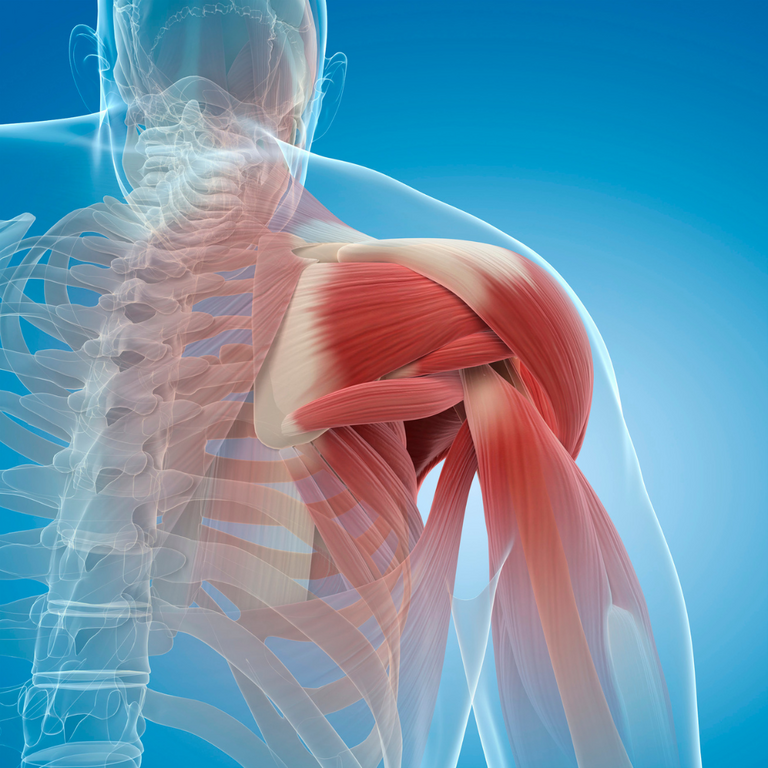
As fitness professionals with expertise in advanced studies in performance athletic programming, we are thrilled to share with you the remarkable benefits of muscle contraction on mental health. The link between muscle contraction and mental health is clear, and the chemical releases that occur during muscle contraction can have a positive impact on various aspects of mental well-being.
Endorphins are one of the chemicals released during physical activity, particularly during intense exercise or muscle contraction. These chemicals produce feelings of euphoria, which can help reduce stress, anxiety, and depression. Additionally, they have a pain-relieving effect and contribute to the feeling of a "runner's high," which can boost mood and improve self-esteem.
Another chemical that plays a significant role in mood regulation is serotonin. This chemical is produced by the body and helps to reduce symptoms of anxiety and depression. Muscle contraction has been found to increase the production of serotonin, which can help individuals feel calmer and more relaxed.
Dopamine is yet another chemical that is released during physical activity and contributes to the feeling of pleasure and reward. Dopamine is associated with positive emotions, motivation, pleasure, and attention, and has been linked to a range of positive feelings. Dopamine release during muscle contraction can help improve motivation and focus, which can contribute to overall mental well-being.
Norepinephrine is a chemical that helps to regulate mood and attention. It helps to increase feelings of alertness and can help reduce symptoms of depression and anxiety. Muscle contraction has been found to increase the production of norepinephrine, which can contribute to overall feelings of well-being.
The benefits of muscle contraction and physical activity on mental health are numerous. Regular physical activity has been found to reduce symptoms of depression and anxiety, increase feelings of euphoria and pleasure, reduce stress levels, improve mood and self-esteem. increase motivation and focus, and reduce symptoms of attention deficit hyperactivity disorder (ADHD). Research has shown that regular physical activity has a long-term impact on mental health, as individuals who exercise regularly have a lower risk of developing depression and anxiety disorders.
Exercise has also been associated with improved self-esteem and overall mental well-being. While muscle contraction and physical activity can be beneficial for mental health, it's not a substitute for professional help. If you or someone you know is experiencing symptoms of depression, anxiety, or any other mental health condition, it's important to seek help from a licensed mental health professional. Physical activity has significant benefits on mental health, and there are many ways to incorporate it into your daily routine. Engage in activities that you enjoy, such as hiking, dancing, or playing sports. Exercise with a friend or family member to make it a social activity. Take breaks throughout the day to stretch or do some light exercises, such as walking or jumping jacks. In addition to the chemical benefits of muscle contraction, physical activity can also improve sleep quality and reduce inflammation in the body, which is associated with a range of health issues, including depression and anxiety.
Research has found that physical activity can improve mental health in children and adolescents as well, improving cognitive function and reducing symptoms of anxiety and depression. Physical activity has numerous benefits on mental health, and it's important to remember that everyone's needs and abilities are different. Start with small changes and gradually increase the amount and intensity of physical activity as your body adapts. Listen to your body and don't push yourself beyond your limits.
In conclusion, the link between muscle contraction and mental health is remarkable, and the chemical releases that occur during muscle contraction can improve mood, reduce stress levels, and increase motivation and focus. Regular physical activity has numerous benefits on mental health, including reducing symptoms of depression and anxiety, improving self-esteem, and reducing symptoms of ADHD. Incorporating physical activity into your daily routine can be a challenge, but the benefits areworthwhile.
Sources: Boecker, H., Sprenger, T., Spilker, M. E., Henriksen, G., Koppenhoefer, M., Wagner, K. J., ... Tolle, T. R. (2008). The Runner's High: Opioidergic Mechanisms in the Human Brain. Cerebral Cortex, 18(11), 2523-2531. doi: 10.1093/cercor/bhn013Chaouloff, F. (1997). Effects of acute physical exercise on central serotonergic systems. Medicine and Science in Sports and Exercise, 29(1), 58-62. doi: 10.1097/00005768-199701000-00009 Dietrich, A., & McDaniel, W. F. (2004). Endocannabinoids and exercise. British Journal of Sports Medicine, 38(5), 536-541. doi: 10.1136/bjsm.2004.011249 Szabo, A., Billett, E., & Turner, J. (2001). Phenylethylamine, a possible link to the antidepressant effects of exercise? British Journal of Sports Medicine, 35(5), 342-343. doi: 10.1136/bjsm.35.5.342 Szabo, A., & Billett, E. (1997). Effects of a mild stressor on endocannabinoid and opioid neurotransmission in the hypothalamus. Psychoneuroendocrinology, 22(5), 333-340. doi: 10.1016/S0306-4530(97)00025-2 Cooney, G. M., Dwan, K., Greig, C. A., Lawlor, D. A., Rimer, J., Waugh, F. R., ... Mead, G. E. (2013). Exercise for depression. Cochrane Database of Systematic Reviews, 9,CD004366. do: 10.1002/14651858.CD004366.pub6 Reed, J. & Buck, S. (2009). The effect of regular aerobic exercise on positive-activated affect: A meta-analysis. Psychology of Sport and Exercise, 10(6), 581-594. doi: 10.1016/ j.psychsport.2009.02.005 American Journal of Psychiatry. Exercise Treatment for Major Depression: Maintenance of Therapeutic Benefit at 10 Months. Volume 161, Issue 12, December 2004, Pages 2245-2252. doi: 10.1176/appi.ajp. 161.12.2245 Journal of Sport and Exercise Psychology. The Effects of Exercise Training on Mental Well-Being in the Normal Population: A Controlled Trial. Volume 21, Issue 4, December 1999, Pages 358-371. doi: 10.1123/sep.21.4.358

.png)